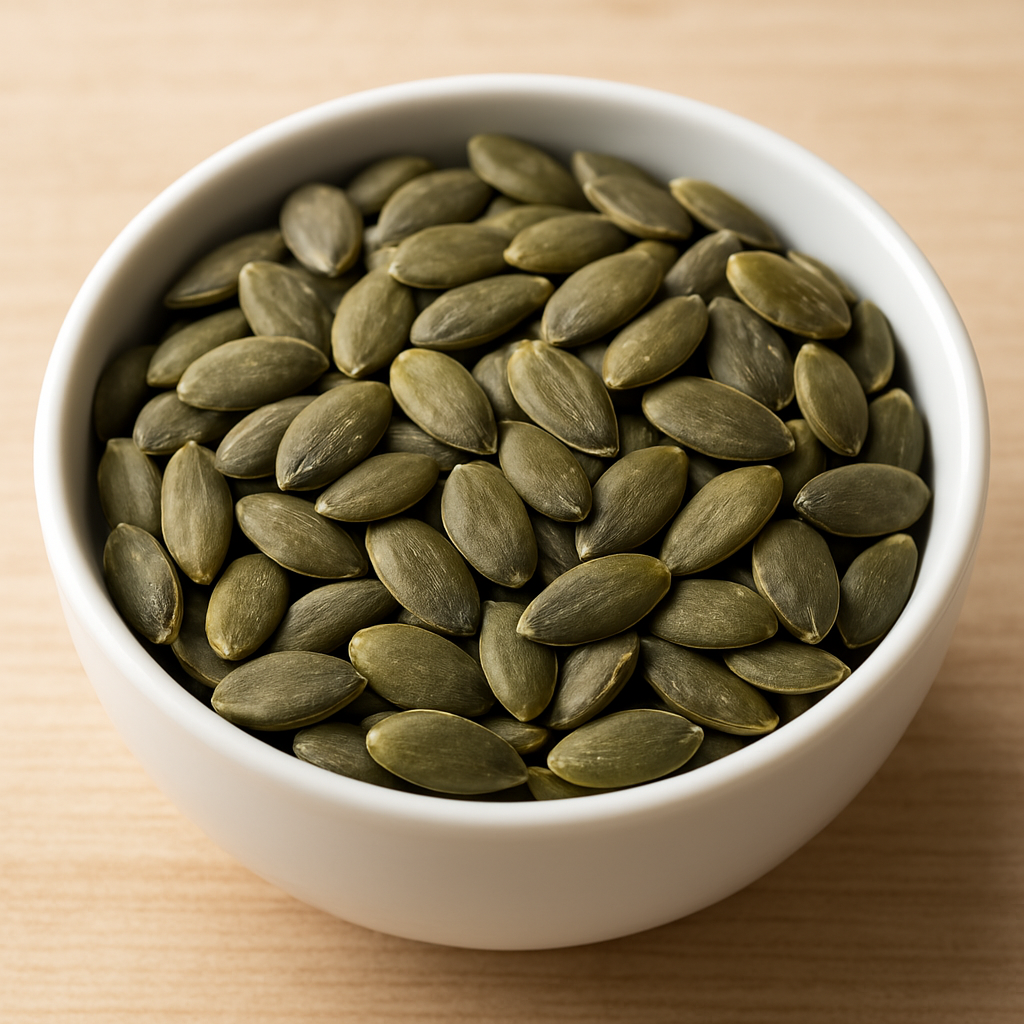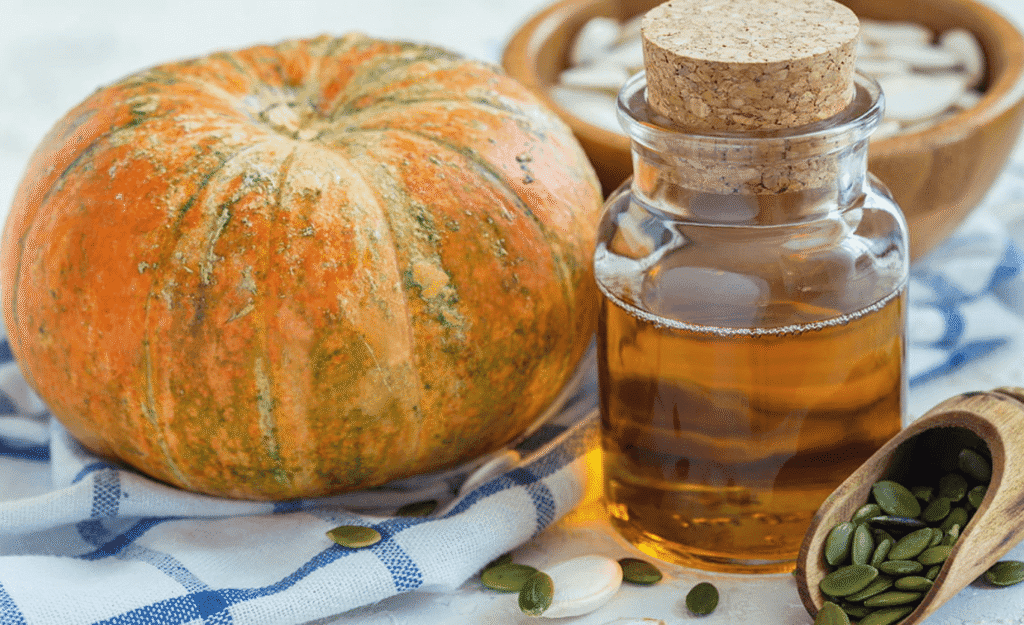
🧡 Introduction: Why Pumpkin Seeds Deserve a Place in Your Kitchen
Pumpkin seeds, also known as pepitas, may be small, but they are nutritional giants. According to Dr. Bharat B. Aggarwal in his book Healing Spices, these seeds are especially potent for men’s health, particularly prostate support. But the benefits don’t stop there. Whether you sprinkle them on a smoothie or roast them with your favorite spices, pumpkin seeds are a healing powerhouse worth adding to your diet.
🌎 A Brief History and Cultural Significance
Pumpkin seeds have been enjoyed for thousands of years, especially by indigenous peoples in the Americas who revered the pumpkin plant as one of the “Three Sisters” alongside corn and beans. These cultures prized the seeds for their nourishment and healing properties. Today, pumpkin seeds continue to be a staple in traditional cuisines from Mexico to Eastern Europe, often eaten roasted with spices or ground into pastes.
🌿 Health Benefits of Pumpkin Seeds
1. Prostate Health Support
As highlighted in Healing Spices, pumpkin seeds help ease symptoms of benign prostatic hyperplasia (BPH). Their rich zinc and phytosterol content plays a key role in reducing prostate inflammation and supporting urinary function in aging men.
2. Anti-Inflammatory Power
Packed with antioxidants like vitamin E, lignans, and phenolic acids, pumpkin seeds help reduce inflammation in the body — which is critical for fighting arthritis, heart disease, and even some cancers.
3. Heart-Healthy Nutrients
These seeds are full of magnesium, which helps regulate blood pressure and heartbeat. Combined with healthy fats (omega-3 and omega-6), they promote better cholesterol balance.
4. Better Sleep Naturally
Pumpkin seeds contain tryptophan, an amino acid your body turns into serotonin and melatonin, promoting calm and restful sleep.
5. Immune System Booster
High in zinc, pumpkin seeds strengthen your immune system, assist in wound healing, and help your body fight infection.
6. Helps Control Blood Sugar
With their fiber, protein, and healthy fat combo, these seeds help regulate blood sugar and reduce insulin spikes — great for those with diabetes or insulin resistance.

🔬 Scientific Insights and Studies
Several scientific studies have supported the traditional uses of pumpkin seeds:
- A 2012 study published in the Journal of Medicinal Food showed pumpkin seed oil improved urinary symptoms in men with BPH.
- Research from Nutrients (2019) highlights the antioxidant effects of pumpkin seed phytochemicals in reducing inflammation.
- A 2020 clinical trial found pumpkin seed supplementation helped improve heart health markers like blood pressure and cholesterol.
These findings reinforce what traditional knowledge and Healing Spices have long emphasized: pumpkin seeds are a valuable functional food for overall wellness.
🔍 Nutritional Snapshot (per 1 oz / 28g)
- Calories: ~150
- Protein: 7g
- Fat: 13g (mostly unsaturated)
- Fiber: 1.7g
- Magnesium: 37% DV
- Zinc: 14% DV
🥄 How to Use Pumpkin Seeds Every Day
- Snack Raw or Roasted: Roast them with sea salt, turmeric, cumin, or cayenne for a healing twist.
- Blend into Smoothies: Add 1–2 tablespoons to green or protein smoothies for creaminess and nutrition.
- Sprinkle on Oatmeal or Salads: Use for added crunch, flavor, and health value.
- Make Pumpkin Seed Butter: Grind seeds into a creamy spread perfect for toast, apples, or even sauces.
- Add to Granola or Energy Bites: Great for DIY granola, trail mix, or homemade protein balls.
- In Baking: Add to breads, muffins, or crackers for nutrition and texture.
- Pumpkin Seed Pesto: Substitute pine nuts with pumpkin seeds for a nutrient-packed twist on pesto.
🧾 Conclusion: Small Seeds, Big Healing
Pumpkin seeds are more than a snack — they’re a healing food backed by both science and tradition. As Healing Spices notes, their power lies in simple daily use. Just a handful a day can support your heart, sleep, hormones, immunity, and more.
❓ FAQ – Pumpkin Seeds
Are raw or roasted seeds better?
Raw seeds retain more nutrients, but light roasting can enhance taste. Avoid heavy oil or sugar roasting.
Can I eat pumpkin seeds every day?
Yes! 1 oz (about a small handful) is ideal.
Safe during pregnancy?
Yes, they’re rich in nutrients like zinc and magnesium. But consult your doctor for personalized advice.
Do I need to peel them?
Store-bought pepitas are shelled and easy to digest. If you’re using whole seeds from a pumpkin, the shell is edible but fibrous.
